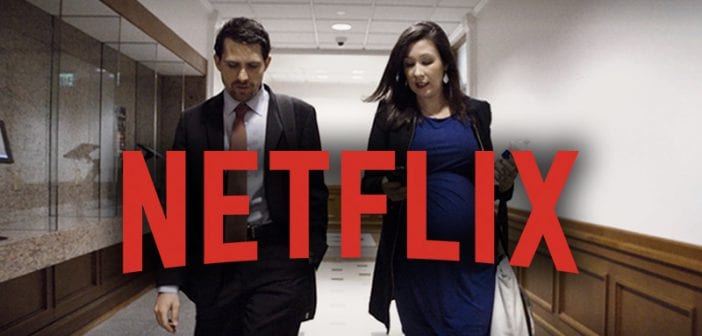Reversing Roe, a new documentary seeking to condense 50 years of the moral and political abortion struggle into a 90-minute film, premiered on Netflix. Directors Annie Sundberg and Ricki Stern focus on a few historical and recent Pro-Life efforts, including those in Texas. While the documentary sidesteps the ethical importance of the debate, the leadership, prudence, and effectiveness of Texas Right to Life could not be dimmed.
The directors shaped the documentary on their own misguided assumptions and biases, namely that opposition to elective abortion is motivated by anti-woman animus and a fundamental religious ideology. Although such presumptions run throughout the documentary, Legislative Director for Texas Right to Life John Seago, explains the central motivating factors and conviction of the state’s oldest and largest statewide Pro-Life organization. In a critical clip in the documentary, Seago explains:
The most important moral question of the abortion debate is what is in the womb? Is it a person? Does it deserve our moral attention and protection or not? That is the most important question. And the Pro-Life movement, we’re outraged because we believe that elective abortion is the taking of an innocent human life. That is an act of injustice that we can stop and we need to stop.
The majority of Texans hold significant reservations about abortion, and those convictions may be related to their religious faiths. However, many Texans, including Texas Right to Life, do not rely solely on religious tenets or doctrine to recognize elective abortion as a true injustice. While the documentary claims that the Pro-Life movement campaigns against science and experts, the reality is that scientific advancement and medical technology actually prove the humanity of the unborn child to the point that the child in the womb can no longer be ignored. This is why, in the documentary, Seago claims, “Sonogram technology is one of the best friends of the Pro-Life movement; it is changing a generation’s mind about what is going on in the womb…” Most fittingly during the documentary’s recording, Texas Right to Life General Counsel Emily Cook was pregnant with baby Andrew, further spotlighting the deep disconnect between the abortion lobby and the reality of life in the womb.
The hour and a half long documentary also features an interview with Sarah Weddington, the attorney who successfully challenged Texas’ Pro-Life laws in Roe v. Wade. Unfortunately, the documentary grants Weddington air time to raise outdated and erroneous talking points:
At one point a [Supreme Court] justice said to me ‘When do you believe human life begins?’ and I said, ‘Well, your honor we did not try to say exactly what moment that was. There is no one answer to that. Different religions have different answers to that question.’
This blatant and misleading evasion of the scientific reality and the moral weight of the issue epitomizes the entire slanted Netflix documentary.
In addition to interviews of leadership from Planned Parenthood, ACLU, and pro-abortion activists Gloria Steinem and Linda Greenhouse, the explicit pro-abortion film also devotes a majority of time to following the day-to-day life and practice of two abortionists, including Texas-based abortionist Curtis Boyd. Two anti-Life Texas politicians also make an appearance in the documentary: Donna Howard (D-Austin) from the Texas House of Representatives and Wendy Davis, a former state senator and gubernatorial candidate.
While the Pro-Life movement is painted as religiously motivated and deceitful, the directors manage to shine light on Texas Right to Life as the Pro-Life leader in Texas. The documentary emphasizes our strong conviction that the movement must be focused, prudent, and bold. In the opening of the film, Seago outlines:
We made this very clear from the beginning that the legislative priority needs to be a bill that stops abortions; the legislative priority needs to be a bill that reveals the truth about abortion; and the legislative priority needs to be a bill that gets us closer to overturning Roe v. Wade.
The documentary Reversing Roe premiered on Netflix on September 13.

